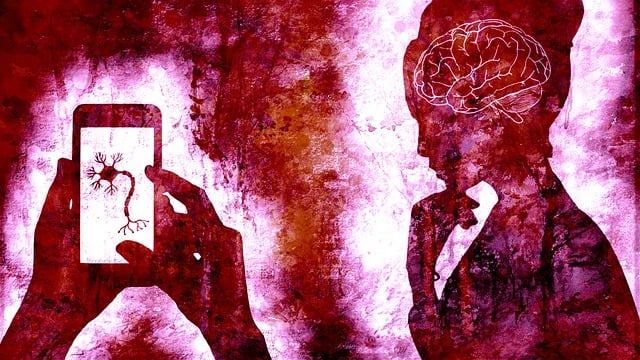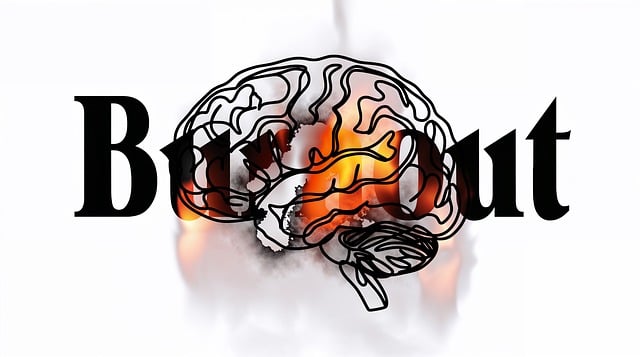The "Lafayette Bipolar Disorder Therapy" podcast uses storytelling to demystify bipolar disorder, combat stigma, and build a supportive community. By featuring diverse personal narratives, it offers practical strategies for navigating mental health challenges while fostering understanding and advocacy, aligning with Mental Health Policy goals. This inclusive approach enriches content, reduces stigma, and encourages open dialogue about mental wellness, emphasizing the importance of individual experiences in emotional well-being promotion. The podcast creates a safe space for listeners to engage with bipolar disorder topics sensitively, providing evidence-based strategies and empowerment. Interviewing individuals with careful consideration ensures open sharing and incorporates risk management planning for professional safety.
“Unveiling the power of mental wellness podcasts, this comprehensive guide delves into the creation of a series focused on Bipolar Disorder. By exploring diverse narratives, we emphasize the importance of personal journeys in mental health conversations. From sensitive interviewing techniques to effective episode structuring, we navigate production with care. Collaborating with professionals and strategic marketing ensure valuable resources reach those seeking Lafayette Bipolar Disorder Therapy. Join us as we unravel the tapestry of mental wellness storytelling.”
- Understanding Mental Health Narratives: A Foundation for Podcast Content
- – Exploring the importance of diverse mental health stories
- – Defining unique angles and personal journeys related to Bipolar Disorder
- Creating an Inclusive Environment: Producing with Sensitivity and Care
- – Strategies for interviewing individuals living with Bipolar Disorder
Understanding Mental Health Narratives: A Foundation for Podcast Content

Understanding mental health narratives is key to creating compelling content for a podcast series focused on Lafayette Bipolar Disorder Therapy. Each episode should offer insights into different aspects of mental wellness, personal stories and experiences being a powerful tool to engage listeners. By sharing real-life accounts from individuals navigating bipolar disorder, we can demystify the condition, reduce stigma, and foster a sense of community. This approach aligns with broader Mental Health Policy Analysis and Advocacy goals, as it humanizes complex issues and encourages open dialogue.
Effective storytelling involves not just relaying facts but also conveying emotions and challenges. It’s through these narratives that listeners can relate to their own experiences or gain new perspectives on managing mental health. Additionally, incorporating Self-Care Routine Development for Better Mental Health strategies within the podcast can provide practical tools for audience members. Communication Strategies play a vital role here; clear, empathetic, and inclusive language ensures every episode resonates with a diverse range of listeners, promoting understanding and support for those dealing with bipolar disorder.
– Exploring the importance of diverse mental health stories

In the realm of mental wellness podcast series production, it’s crucial to present a diverse array of stories and experiences. This includes featuring individuals from various backgrounds, cultures, and walks of life who have overcome challenges related to mental health conditions such as Lafayette Bipolar Disorder Therapy. By sharing these narratives, listeners can gain valuable insights into different perspectives on managing stress, emotional well-being promotion techniques, and the complexities of mental health journeys. Such diversity enriches the podcast’s content, making it more relatable and impactful for a wide audience.
Moreover, incorporating stories that highlight unconventional paths to recovery or less commonly discussed mental health issues can help reduce stigma and foster a sense of community among listeners. This approach not only enhances the educational value of the podcast series but also encourages open dialogue about mental wellness topics. It also underscores the importance of recognizing individual experiences in the broader context of emotional well-being promotion, while reminding us that effective risk assessment for mental health professionals is paramount to ensuring safe and supportive environments for all individuals engaging with mental health content.
– Defining unique angles and personal journeys related to Bipolar Disorder

In the realm of mental wellness podcast series production, shedding light on unique angles and personal journeys can significantly impact listeners, especially those grappling with bipolar disorder. The Lafayette Bipolar Disorder Therapy podcast offers a refreshing perspective by delving into diverse experiences, ensuring no one’s story is left untold. Each episode explores different facets of managing this complex condition, providing valuable insights for those seeking understanding and support.
By incorporating personal narratives, the podcast series not only educates but also humanizes bipolar disorder, breaking down stereotypes. It fosters a sense of community among listeners, encouraging open dialogue about coping skills development and social skills training. Through authentic storytelling, it empowers individuals to embrace their journeys and discover effective strategies for navigating life’s challenges.
Creating an Inclusive Environment: Producing with Sensitivity and Care

Creating an inclusive environment is paramount when producing a mental wellness podcast series. It’s crucial to approach content creation with sensitivity and care, especially when discussing topics like Lafayette Bipolar Disorder Therapy. This means ensuring diverse voices are represented, actively seeking input from various communities, and avoiding stereotypes or insensitive portrayals. By fostering an environment that values inclusivity, you encourage open dialogue about mental health struggles, promote understanding, and offer a safe space for listeners to engage with the content.
This sensitivity extends to how you discuss sensitive subjects like self-esteem improvement and stress management. Presenting information responsibly involves carefully researching and presenting evidence-based strategies while acknowledging the complexity of individual experiences. A thoughtful approach can empower listeners by providing valuable insights into managing mental wellness, fostering a sense of community, and encouraging them to seek support when needed, much like Lafayette Bipolar Disorder Therapy offers to its clients.
– Strategies for interviewing individuals living with Bipolar Disorder

When producing a podcast series focused on mental wellness, interviewing individuals living with Bipolar Disorder requires sensitivity and expertise. It’s crucial to establish a safe and non-judgmental space for them to share their experiences openly. This involves clear communication about the purpose of the interview, ensuring confidentiality, and creating an environment that fosters trust. Encouraging honest discussions can yield powerful insights into the disorder’s impact on daily life, treatment journeys, and coping strategies.
For optimal results, podcast hosts should prepare thoughtful questions that delve into various aspects of Bipolar Disorder, such as its symptoms, triggers, and management techniques. Exploring topics like burnout prevention and self-esteem improvement is essential, as these are common challenges for individuals with bipolar. Additionally, integrating risk management planning for mental health professionals can provide valuable context and ensure the safety of both guests and listeners.
Producing a mental wellness podcast series, especially focusing on Bipolar Disorder like “Lafayette Bipolar Disorder Therapy,” requires careful navigation. By understanding diverse mental health narratives and creating an inclusive environment, we can offer authentic, sensitive, and impactful content. The strategies outlined in this article—from exploring unique personal journeys to implementing best practices during interviews—are crucial steps towards producing a series that resonates with listeners and fosters open conversations about mental health.














